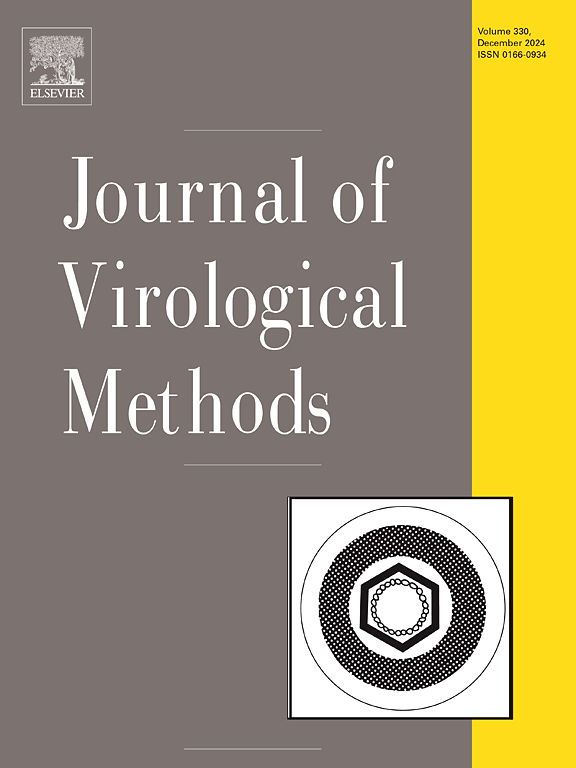Evaluation of the performance of a dengue NS1 assay during the 2024 epidemic in Brazil
IF 2.2
4区 医学
Q3 BIOCHEMICAL RESEARCH METHODS
引用次数: 0
Abstract
Accurate diagnosis of dengue in the acute phase is crucial for proper patient management, reducing mortality rates, and enabling public health authorities to implement effective vector control measures. Our study, conducted during the 2024 dengue epidemic in Brazil, compared the results of a rapid dengue NS1 antigen detection assay with dengue RT-PCR using 300 serum specimens. Ninety-five percent of the patients reported symptoms consistent with dengue infection. We observed substantial agreement between the two tests (kappa = 0.8). The rapid NS1 test demonstrated 87 % sensitivity and 92.7 % specificity, using dengue RT-PCR as the gold standard. Our findings confirm that the rapid NS1 antigen detection test can be reliably used during the acute phase of dengue infection to provide an accurate diagnosis.
求助全文
约1分钟内获得全文
求助全文
来源期刊
CiteScore
5.80
自引率
0.00%
发文量
209
审稿时长
41 days
期刊介绍:
The Journal of Virological Methods focuses on original, high quality research papers that describe novel and comprehensively tested methods which enhance human, animal, plant, bacterial or environmental virology and prions research and discovery.
The methods may include, but not limited to, the study of:
Viral components and morphology-
Virus isolation, propagation and development of viral vectors-
Viral pathogenesis, oncogenesis, vaccines and antivirals-
Virus replication, host-pathogen interactions and responses-
Virus transmission, prevention, control and treatment-
Viral metagenomics and virome-
Virus ecology, adaption and evolution-
Applied virology such as nanotechnology-
Viral diagnosis with novelty and comprehensive evaluation.
We seek articles, systematic reviews, meta-analyses and laboratory protocols that include comprehensive technical details with statistical confirmations that provide validations against current best practice, international standards or quality assurance programs and which advance knowledge in virology leading to improved medical, veterinary or agricultural practices and management.

 求助内容:
求助内容: 应助结果提醒方式:
应助结果提醒方式:


